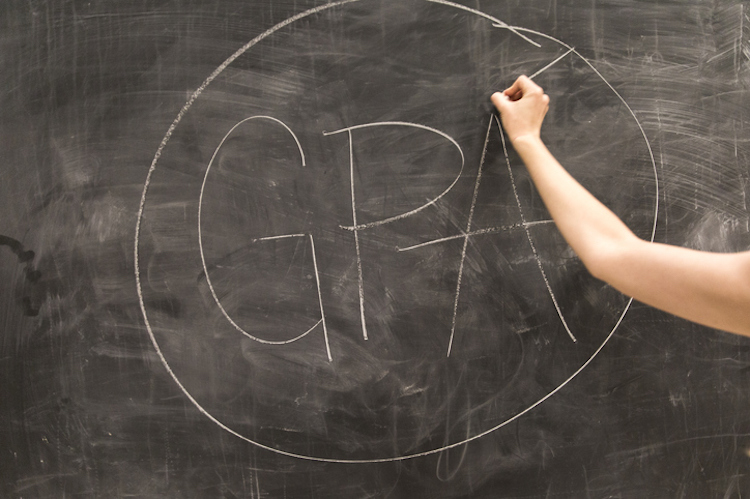
Chalkboard with GPA Written
Low GPA? How To Apply To Law School
Undergraduate GPA is one of the most important factors in law school admissions.
“The first thing we tell law students when they get to school is this is a marathon. A lot of it is endurance and how you perform over time,” Katrin Hussmann Schroll, associate dean of admissions, enrollment management and financial aid at the University of Miami Law School, tells US News. “And in terms of indicators in the application process, the undergraduate GPA tends to be one of the best indicators about performance over time and how students handle academic journeys and the ups and downs.”
Gabriel Kuris, founder of Top Law Coach and contributor at US News, recently discussed the role that GPA plays in law school admissions and offered tips on how to address a low GPA in your application.
THE ROLE OF GPA
In law school admissions, a high GPA typically is seen as a reliable indicator of academic potential.
“Law schools see students with good grades as having a proven ability to analyze information, communicate effectively and meet expectations,” Kuris says.
And while GPA is important, Kuris says, they are only one factor out of many other considerations.
“Law schools know that grades are just one clue to an applicant’s abilities, along with standardized test scores and other factors,” Kuris says. “Some bright students get low grades because they took on challenging classes or competing responsibilities; others took time to hit their stride or find their niche.”
USE AN ADDENDUM
If you are applying to law school with a low GPA, Kuris recommends including an addendum to provide context around your academic performance.
“If you have a concrete reason for underperformance, like an illness or personal challenge or change in majors, describe it succinctly and explain how the situation resolved or why it will no longer affect your academic performance,” Kuris says. “For example, maybe you struggled with a mental health issue and your grades suffered for a semester. You can’t change your past, but you can use a carefully crafted addendum to show that you took hold of the situation, sought help and learned to manage it – showing your maturity and resilience.”
HIGHLIGHT OTHER FACTORS
There are many other factors outside of GPA that law schools consider when looking at an applicant. Kuris recommends leaning into other aspects of your application, if you’re applying with a low GPA.
“Get recommendation letters from people who can speak to your intellectual abilities. Use your personal statement to showcase your communication skills,” Kuris says. “Write a resume that specifies how your jobs required high-level performance under pressure. A strong LSAT score can compensate for a low GPA, so it is well worth the investment of time and effort it takes to do well. Many competitive law schools screen applicants using a weighted index of their grades and LSAT scores, so extra points on the LSAT may effectively boost your GPA.”
TAKE ADDITIONAL CLASSES
If you’re intent on applying to law school with a higher GPA, it may be wise to take on extra classes.
“If you are still an undergraduate, take summer classes or increase your course load to balance out earlier underperformance and to show a strong trend of improvement,” Kuris says. “Consider taking a gap year before applying. Then, your transcript report will include all of your senior-year grades, which may raise your cumulative GPA. And it will be easier to focus on coursework without having to complete applications.”
Next Page: Yale Law expands its full-tuition scholarship program.

Questions about this article? Email us or leave a comment below.